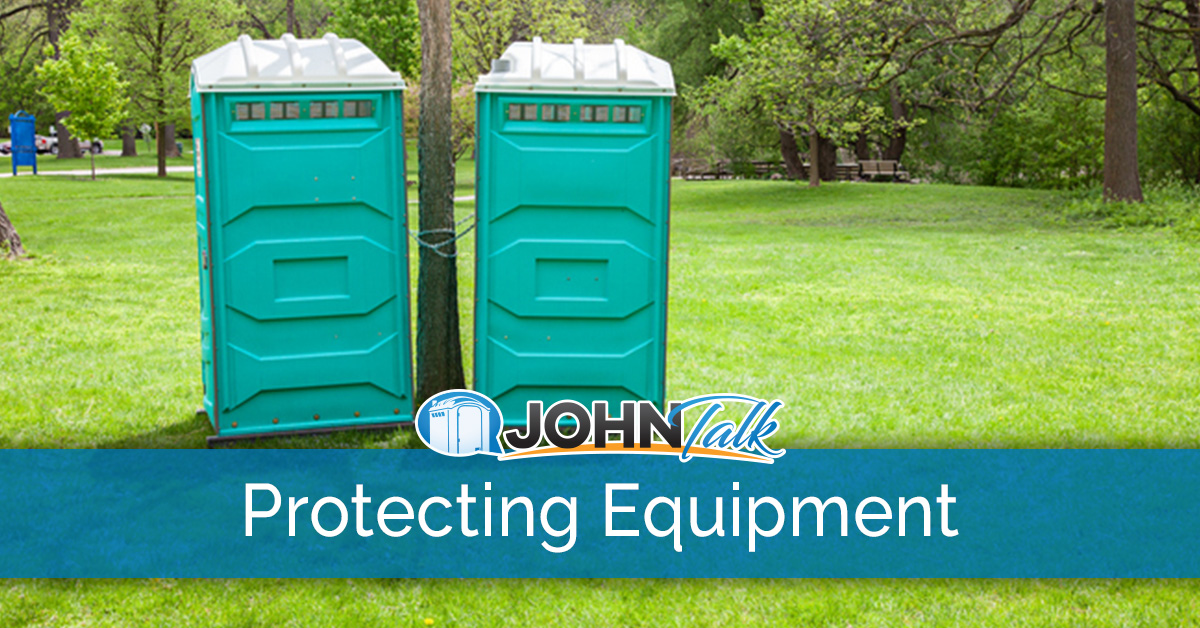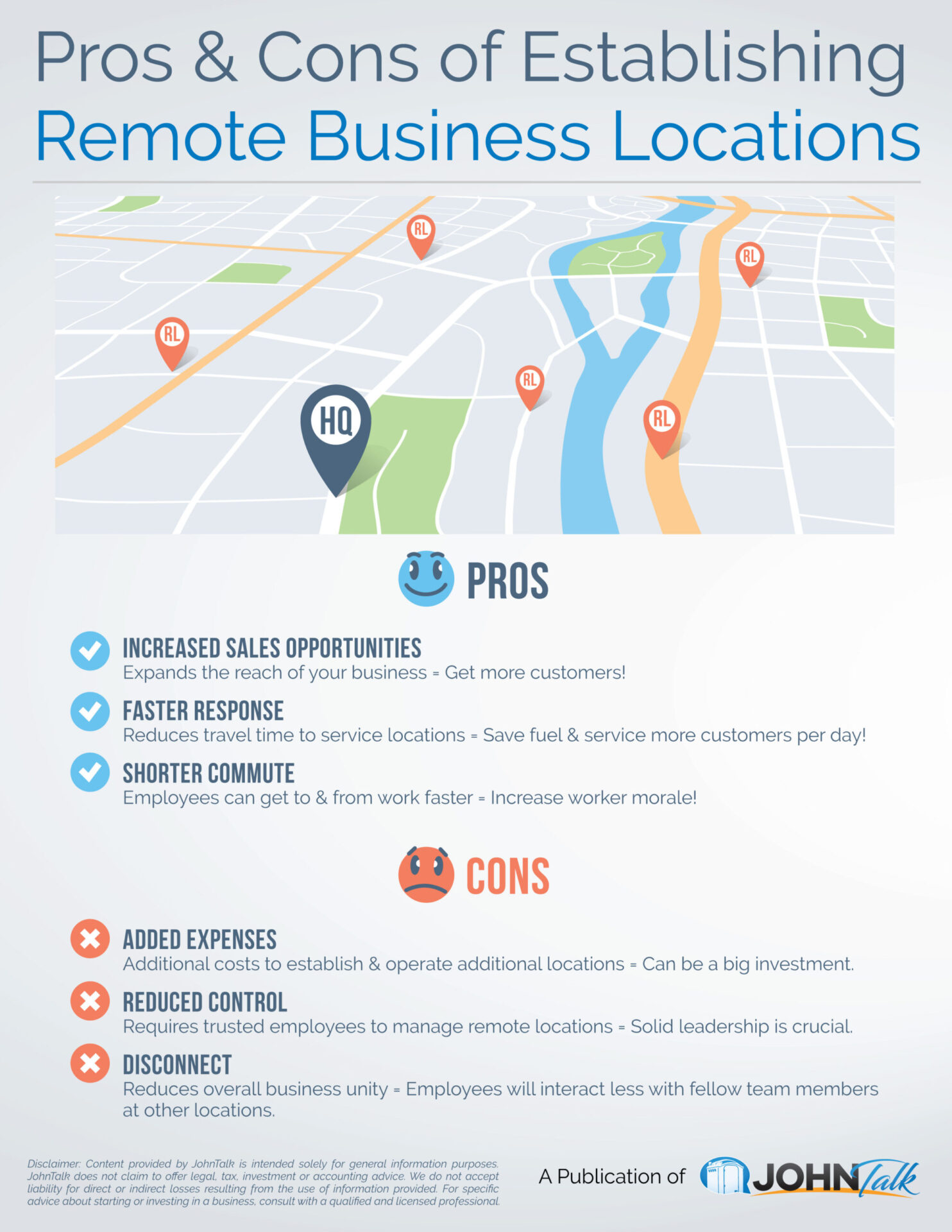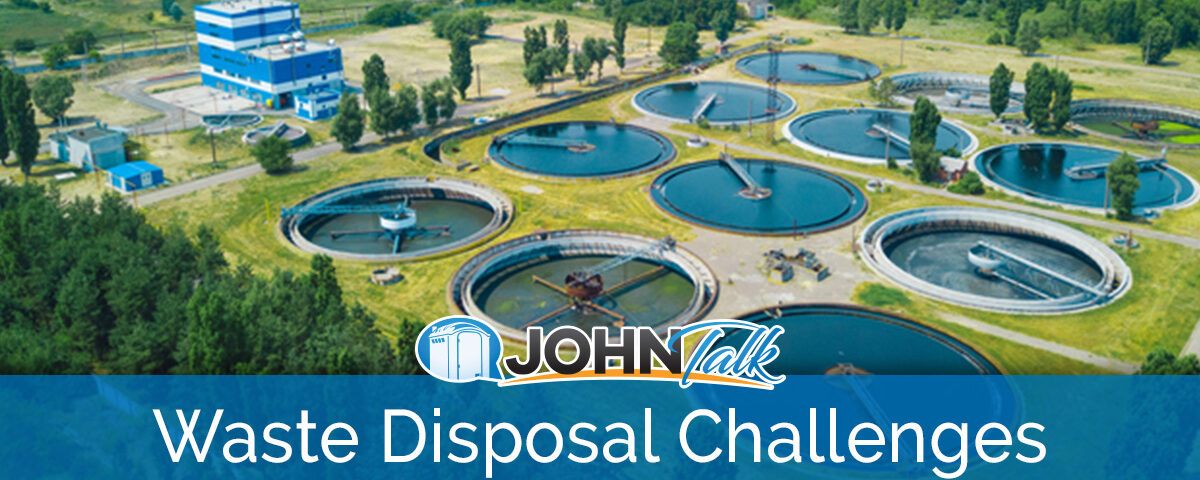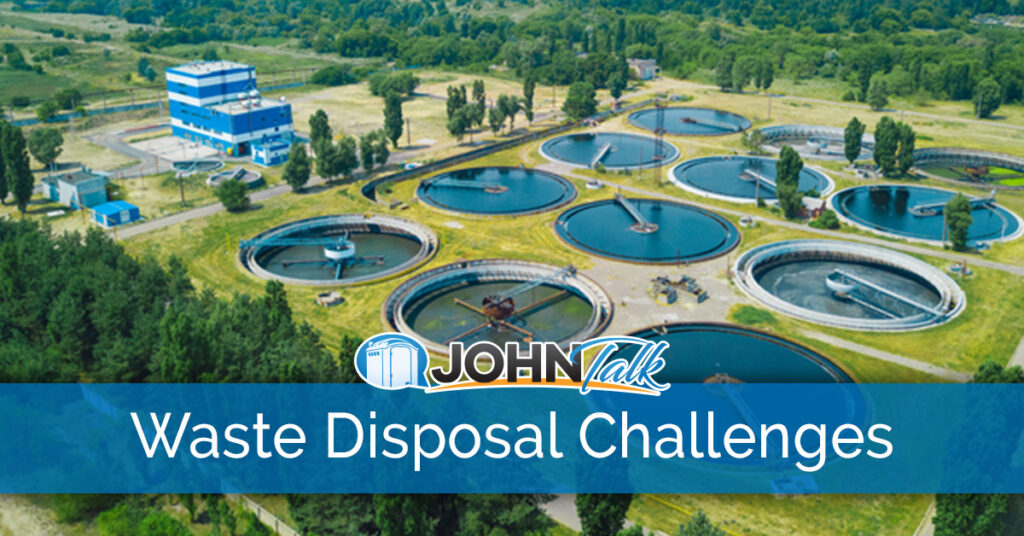
Protecting Equipment from Vandalism & Theft
August 31, 2020
INFOGRAPHIC: Pros & Cons of Establishing Remote Business Locations
September 21, 2020Do you feel a sense of dread when your sight bubble shows a full tank? You’re not alone. Heading to a waste disposal site isn’t always easy or convenient. And fee increases combined with hefty regulations sure don’t help either.
Nevertheless, dumping your waste is an inevitable part of portable restroom operations. Although PROs face hurdles with sewage disposal, you can take steps to avoid problems. Explore these common dumpsite challenges and find ways to simplify the process.
1. Finding a Dumpsite Near You: Important Considerations
Selecting a disposal facility along your route saves you time and money. However, the closest sites aren’t always the best choice. You’ll find some variance in fees, red tape, and overall convenience. For example, busy areas may result in longer wait times or volume limits. If you’re unhappy with your current dumpsite, research your surrounding region to find other plants. Contact sites and ask about:
- Types and amounts of hauled waste accepted
- How the site classifies your loads
- Allowable pollutants and concentrations
- The permit process, including vehicle inspections or safety classes
- The fee schedule for vehicles, annual permits, and dumping charges
- Documents needed to register your restroom operations
2. Hazards from Public Health Emergencies
Especially now, waste disposal sites may require more personal protective equipment (PPE) to prevent passing infection among staff and waste haulers, so it’s crucial to keep an adequate PPE stock. You’ve likely used these items before. After all, the Occupational Safety and Health Administration (OSHA) says, “There is no evidence to suggest that additional, COVID-19-specific protections are needed for employees involved in wastewater management operations.”
Reduce hazards by using best practices. Standard PPE includes waterproof and puncture-resistant gloves, face, and eye protection. Rubber boots may not be required, but they keep your employees safer. Plus, stock plenty of face masks, disinfectant wipes, and hand sanitizer in your trucks.
Get the JohnTalk “ALL-ACCESS PASS” & become a member for FREE!
Benefits Include: Subscription to JohnTalk Digital & Print Newsletters • JohnTalk Vault In-Depth Content • Full Access to the JohnTalk Classifieds & Ask a PRO Forum
3. Staying Safe While Navigating Environmental Rules
When disposing of waste, you’re bound by local sewer use ordinances, state, and federal environmental standards. Although all sites follow the Environmental Protection Agency (EPA) rules, differences in treatment plant capabilities may result in tighter regulations.
Disposal sites may request information about the volume and concentrations of bacterial growth inhibitors or solutions used for your waste treatment or cleaning processes. Some require safety data sheets (SDS) as well. To avoid issues at the dumpsite, consider:
- Using enzymes and microbes instead of chemical treatments like formaldehyde
- Avoiding banned chemicals which may include bronopol or para-dichlorobenzene
- Maintaining proper pH and alkalinity levels in your tank
4. Waste Disposal Fee Increases
You may pay separate fees for your pumping and transporting permit, vehicle fees, or extra costs related to COVID-19. Although most charges are unavoidable, you can ask your local wastewater treatment plant about volume discounts. Look for ways to reduce your expenses by only taking full loads and planning for customer stops en route to the facility.
Manage and Overcome Obstacles with Waste Disposal
Let’s face it; waste disposal is necessary. You’re at the mercy of your local dumpsites and must abide by their rules and regulations. While disposing of waste isn’t always the first thing on your mind, it’s essential to have a system in place, obey all rules, and follow safe disposal practices to protect your reputation and keep your staff safe.
Looking to Take Your Portable Restroom Business to the NEXT LEVEL? Download our FREE Guide: “Your Guide to Operating A Portable Restroom Business.”
Thinking About GETTING INTO the Portable Restroom Industry? Download our FREE Guide: “Your Guide to Starting A Portable Restroom Business.”






